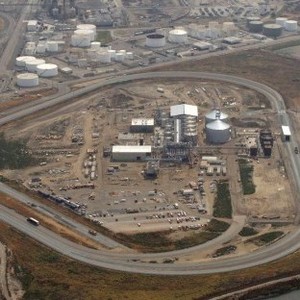Pacific Ethanol reports strong Q3 financial results

Pacific Ethanol Inc.
October 30, 2014
BY Erin Krueger
Pacific Ethanol Inc. has released third quarter financial results. During an investor call, Neil Koehler, president and CEO of Pacific Ethanol, noted 2014 is on pace to be a record year for the company.
Pacific Ethanol reported net sales of $275.6 million for the quarter, up from $233.9 million during the same period of last year. Net income was $3.7 million, or 15 cents per diluted share. Adjusted net income was $8.1 million or 33 cents per diluted share. Adjusted EBITDA was $15.5 million, up from $2.4 million during the third quarter of 2013. Gross profit was $18 million, up 18 percent when compared to last year.
The company sold a record 133.7 gallons of ethanol during the quarter, up from 104.9 million gallons during the same period of last year. During the first nine months of the year, Koehler indicated the company sold a record 378.6 million gallons of ethanol and achieved a $90 million gross profit.
According to Koehler, Pacific Ethanol is completing projects at each of its four ethanol plants that will add further value to its operations. “We believe these plant improvement initiatives will lead to an annual EBIDA improvement of approximately 6 to 7 cents per gallon, representing a contribution of approximately $12 to $14 million to our annual operating income,” he said.
Advertisement
Advertisement
As part of those improvements, Pacific Ethanol is continuing to diversify its revenue streams. The company has signed an agreement with Kodiak Carbonic LLC to sell carbon dioxide from its Columbia plant in Oregon.
Corn oil extraction at Pacific Ethanol’s California-based Stockton and Idaho-based Magic Valley plants contributed an estimated $1.6 million of operating income during the third quarter, Koehler said, noting that corn oil extraction is also being added to the Madera facility in California and the Columbia plant. Corn oil extraction at those facilities is expected to begin early next year.
During the call, Koehler also discussed several advanced biofuel initiatives the company is pursuing, including joint development work with Sweetwater energy. The company is also working with Edeniq and Inbicon on separate cellulosic initiatives.
Pacific Ethanol’s plans in the advanced biofuel space, however, are not limited to cellulosic production. The company is also piloting an anaerobic digestion system at the Stockton plant and is evaluating various configurations of cogeneration, particularly for the California plants, where Koehler noted electricity prices are high and the company receives a low carbon premium for the ethanol it producers.
Advertisement
Advertisement
Koehler also addressed recent ethanol margins, noting that the industry has experienced some margin compression in recent weeks. He said the pattern is similar to last year and indicated the company believes these conditions reflect the seasonal drop common with the ethanol industry. Short-term conditions are already improving he said, as a record corn crop is harvested and exports of ethanol accelerate.
Regarding demand, Koehler indicated E15 is expected begin contributing to stronger domestic demand in the future. He also called exports a bright spot in the current industry. U.S. Energy Information Agency data shows ethanol exports are up 50 percent from last year, he said, adding that exports are on pace to reach up to 1 billion gallons by the end of the year.
Related Stories
Marathon Petroleum Corp. on Aug. 5 released second quarter financial results, reporting improved EBITDA for its renewable diesel segment. The company primarily attributed the improvement to increased utilization and higher margins.
Chevron Corp. on Aug. 1 confirmed the company started production at the Geismar renewable diesel plant in Louisiana during the second quarter after completing work to expand plant capacity from 7,000 to 22,000 barrels per day.
The public comment period on the U.S. EPA’s proposed rule to set 2027 and 2027 RFS RVOs and revise RFS regulations closed Aug. 8. Biofuel groups have largely expressed support for the proposal but also outlined several ways to improve the rulemaking.
In celebration of World Biodiesel Day, MOL Group on Aug. 8 announced SAF was successfully produced for the first time at INA’s Rijeka Refinery during a pilot project to process biocomponent. Renewable diesel was also produced.
Iowa farmers have a new market opportunity for their 2025 soybean crop. Landus is expanding its Clean Fuel Regulation initiative, made possible by recent policy changes expected to increase Canada's demand for liquid biofuel.
Upcoming Events










